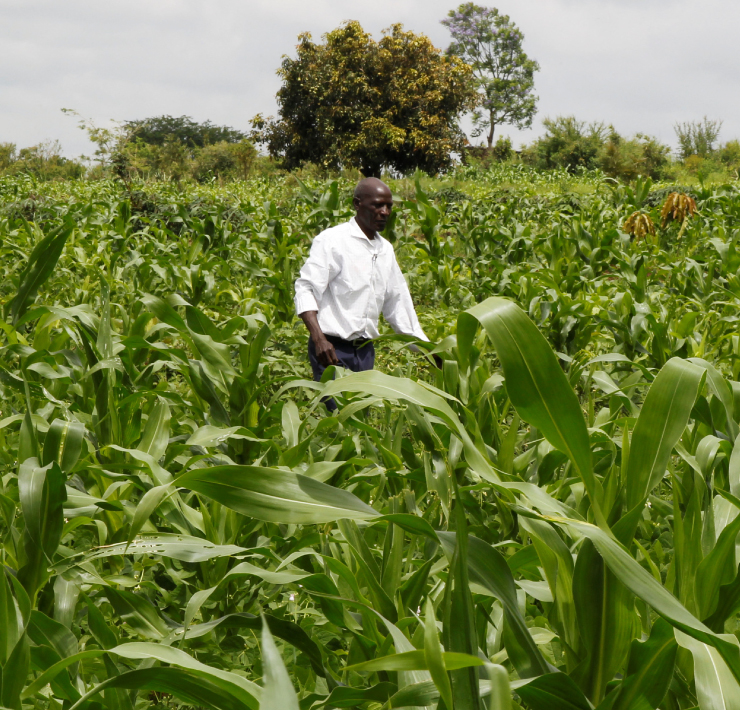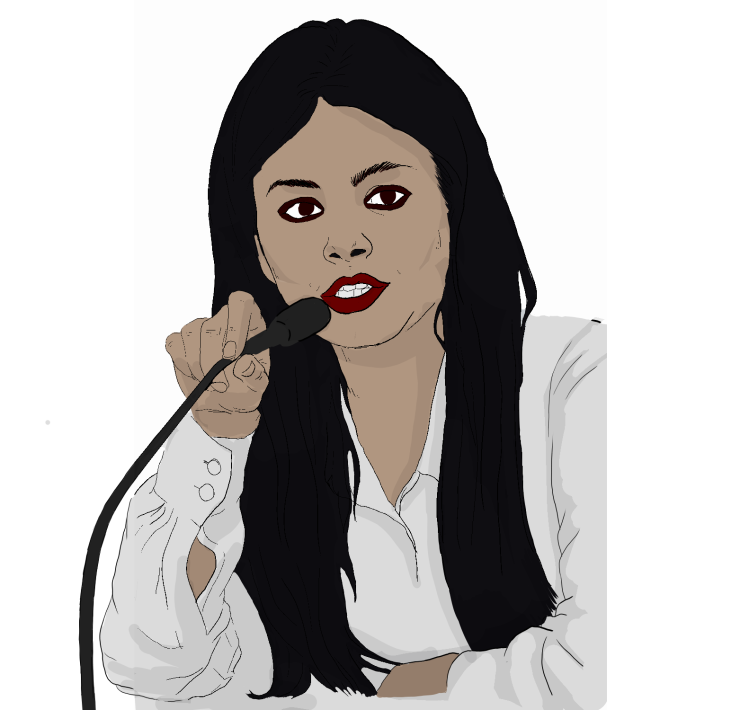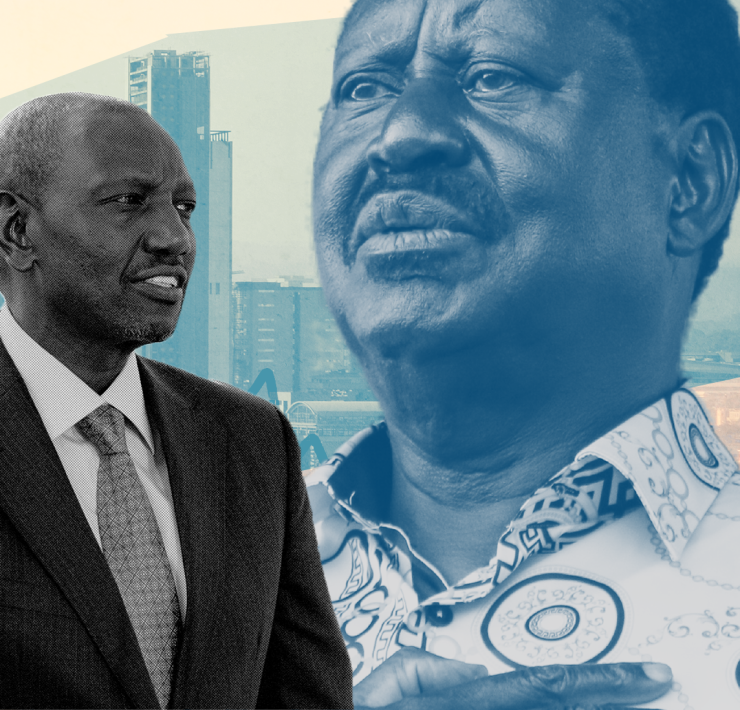It is unfortunate that Kenya lifted the ban on genetically modified (GMO) foods in October last year without sufficient public participation (a constitutional requirement) or debate on whether the growing and consumption of such foods is beneficial to the country and its citizens. As far as I know, no farmers’ associations or agricultural societies were consulted nor were Kenyan consumers given a chance to air their views. The news that GMOs were going to be introduced in the country came as a surprise to many Kenyans, especially farmers.
Those in favour of genetically modified foods argue that GMO crops are disease-resistant and produce larger yields than non-GMO crops, and therefore boost food security. The government points to the fact that Kenyan farmers are not currently meeting the country’s food requirements. Kenya produces between 30 to 40 million bags of maize annually, with the deficit of about 10 million bags being met by regional markets. Pro-GMO advocates say that food production has to keep up with a rising population and that GMOs will guarantee larger yields.
However, critics of GMOs argue that food security is the least convincing argument for GMOs, especially when this argument is pushed by foreigners with undisclosed interests. As the Ugandan analyst Mary Serumaga asks, when food security is being discussed on global platforms such as the World Economic Forum, why is the billionaire philanthropist Bill Gates there and not independent scientists and small-scale farmers from food-insecure countries? (Interestingly, Gates, an advocate for GMOs, visited Kenyan president William Ruto just around the time the government lifted the ban on GMOs that had been in effect since 2012.) “Logically, if there were genuine concerns about ending hunger, by now development partners would have adopted simpler solutions, such as irrigation and fairer Economic Partnership Agreements (EPAs) with Europe,” says Serumaga.
Kenyan civil society organisations, led by Muslims for Human Rights (MUHURI) and Haki Yetu, are advocating against the growing or importation of GMO foods, but their voices are drowned out by politicians who are eager to join the GMO bandwagon. It is worth noting that more than 40 countries in Africa have banned GMOs, reflecting the level of skepticism around GMOs on the continent.
The people that will be most negatively affected by the government’s decision are small farmers. The Kenya Farmers Association says that the decision to introduce GMOs in Kenya was rushed and does not address the issues that farmers in Kenya have been complaining about, such as lack of access to subsidised seeds and affordable fuel. Anti-GMO activists argue that GMO seeds are very costly and unaffordable for the vast majority of small farmers in Africa.
The more important question is who owns the GMO seeds and who decides when or how they will be grown.
According to Debating Europe, an online platform that allows European Union citizens to debate issues that affect them, “Farmers hooked on biotech crops are at the mercy of companies that own the patents on seeds and set the prices. So-called ‘terminator technologies’ could prevent growers from using last year’s seeds to plant new crops, forcing them to keep buying from the GMO companies. GMO production favours big business over small farmers and encourages the trend towards ‘monoculture’ growing that is bad for the environment, farmers and consumers.”
These concerns are echoed by Dr. Wahome Ngare who posted this tweet: “GMOs are patented products, they belong to the developer. Once all our foods are genetically modified, the owner can dictate who shall plant them (large or small-scale farmers), the buying price of the seeds, the selling price of the harvest and who can and cannot buy the harvest. The pollen from GMO products can contaminate our natural non-patented seeds to metamorphose into GMO, meaning the GMO owner can claim ownership of the harvest.”
Skepticism over GMOs is growing even in Europe. In 2015, the European Commission ruled that EU countries could opt out of growing GMO crops. Nineteen countries in Europe, including Austria, France, Germany, the Netherlands and Italy, have imposed a total ban on GMOs. Obviously, they know something that Kenyan legislators do not.
There is also the question of whether Kenya and other African countries have sufficient legislation to protect farmers, consumers and the environment from the potential negative impacts of GMO foods. Any move to lift the ban on GMOs should have been accompanied by well-thought-out legislation that protects Kenyans’ interests. This, sadly, has not happened, leaving Kenyan farmers and consumers at the mercy of corporations that will determine what we grow and eat.
Author
-

Rasna Warah is a Kenyan writer and journalist with over two decades of experience as an editor, writer and communications specialist. She wrote a weekly op-ed column for the Daily Nation, Kenya’s leading newspaper, for many years, and has contributed to various regional and international publications, including, the UK’s Guardian, Africa is a Country, The East African, The Mail and Guardian, The Elephant, and Kwani? She has worked as an editor and writer at the United Nations Human Settlements Programme (UN-Habitat) and has published two books on Somalia: Mogadishu Then and Now (2012) and War Crimes (2016). Her first book, Triple Heritage (1998), explored the history of South Asians in East Africa. Her latest book, Lords of Impunity (2022), examines the failures and internal contradictions of the United Nations and what can be done to transform this global body. She holds a Master’s degree in Communication for Development from Malmö University in Sweden and a Bachelor of Science Degree in Psychology and Women’s Studies from Suffolk University in Boston, USA. She is based in Nairobi, Kenya.
Rasna Warah is a Kenyan writer and journalist with over two decades of experience as an editor, writer and communications specialist. She wrote a weekly op-ed column for the Daily Nation, Kenya’s leading newspaper, for many years, and has contributed to various regional and international publications, including, the UK’s Guardian, Africa is a Country, The East African, The Mail and Guardian, The Elephant, and Kwani? She has worked as an editor and writer at the United Nations Human Settlements Programme (UN-Habitat) and has published two books on Somalia: Mogadishu Then and Now (2012) and War Crimes (2016). Her first book, Triple Heritage (1998), explored the history of South Asians in East Africa. Her latest book, Lords of Impunity (2022), examines the failures and internal contradictions of the United Nations and what can be done to transform this global body. She holds a Master’s degree in Communication for Development from Malmö University in Sweden and a Bachelor of Science Degree in Psychology and Women’s Studies from Suffolk University in Boston, USA. She is based in Nairobi, Kenya.








